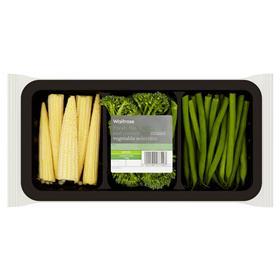
The UK secretary of state for environment, food and rural affairs, Michael Gove, today launched the UK government’s Resources and Waste Strategy, laying out plans to reduce single-use plastics, simplify household recycling, make retailers and packaging manufacturers pay for collection and recycling, and end food waste.
Retailers that use difficult-to-recycle materials including black plastic trays could face penalty charges under the plan, while lower fees could be charged for packaging that is easy to reuse or recycle.
According to the strategy, “‘Extended producer responsibility’ (EPR) is a powerful environmental policy approach through which a producer’s responsibility for a product is extended to the post-use stage. This incentivises producers to design their products to make it easier for them to be re-used, dismantled and/or recycled at end of life. It has been adopted in many countries around the world, across a broad range of products, to deliver higher collection, recycling and recovery rates.”
Through local councils, taxpayers presently pay the £1bn it costs to process the UK’s rubbish, with supermarkets and large corporations contributing just 10 per cent. The new plans would see contributions from companies increase from around £70m a year to £500m-£1bn a year, according to the Guardian.
In addition to a tax on single-use plastics, the strategy would also consider a ban on plastic packaging where alternatives exist, and could see best before labels scrapped for fruit and vegetables.
The plan equally commits to a deposit return scheme for bottles and cans, although critics have questioned the timing of the rollout, which may not happen for another five years.
Mary Creagh, chair of the environmental audit committee, told the Guardian: “The government appears to be kicking the waste can down the road yet again. The plastic bottle deposit return scheme promised in 2018 won’t be ready until 2023. Textile waste piling up in landfill won’t be tackled until even later. With scientists warning we have just 12 years to tackle climate change, this strategy is too little, too slowly.”
Sian Sutherland, co-founder of campaign group A Plastic Planet, welcomed the introduction of separate food waste collections for all households, but stressed the scale of the challenge ahead.
“We have consistently called for this,” she said. “But this is just the start of the urgent action required to radically overhaul our creaking waste management system. Right now it's totally unfit for purpose.”
Sutherland called for a rapid transition to alternative materials, highlighting that a reduction in plastic use was highly preferable to recycling.
'We desperately need proper investment in industrial composting and anaerobic digestion, ensuring we can put our food waste to good use and have the right end of life for those compostable biomaterials that provide such an easy immediate alternative to indestructible plastic packaging,” she said. “This, coupled with a total ban on UK plastic rubbish exports to the developing world, would complete the UK's transformation from zero to hero on waste.”
The government’s plans, set to come into force in 2023, are subject to consultation in 2019.



